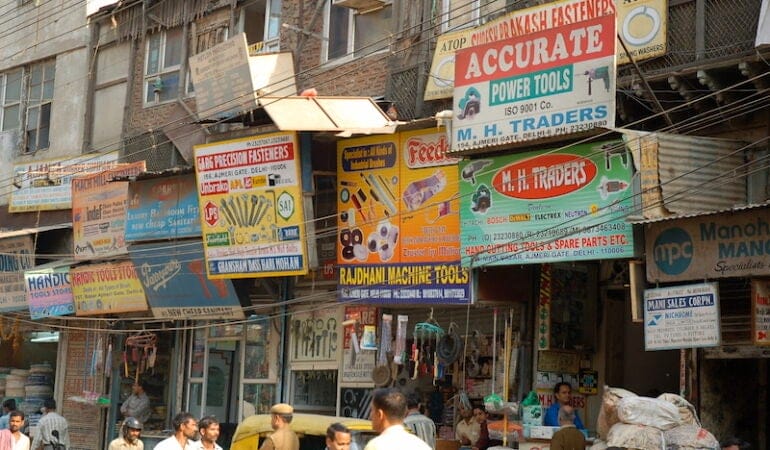
Urban Land Governance
Economists have long theorized that restrictive land use regulations are limiting growth and exacerbating inequalities in developing countries. Now, in the first study of its kind, researchers will explore this question by analyzing data on the 100 largest cities in India—home, collectively, to some 153 million people.
The economic opportunities provided by cities are central to the processes of development and inclusive economic growth. This is especially true in many developing, fast-urbanizing countries. Land policies determine whether cities will be dense or sprawling, what kinds of firms and workers they will attract, the cost of living, and whether they will produce an adequate supply of housing for present and future residents.
When the barriers to land transactions and land development are high, economic theory and empirical evidence suggest developers will be unable to build the housing stock demanded by urban residents, leading to cities with less productive firms; more sprawling, larger slums; and a reduced ability to absorb large numbers of potential migrants seeking a better life.
Development Data Lab (DDL), a nonprofit research organization, is undertaking a project in collaboration with the Lincoln Institute of Land Policy to explore the impact of restrictive, inefficient, and inefficiently administered urban land policies on economic growth and poverty. Researchers will assemble data on three major features of urban land governance in cities across India: land litigation, land taxation, and restrictions on land development. They will build a pilot data set with a small number of variables for India’s 100 largest cities, along with richer data for the three largest cities—Delhi, Mumbai, and Bangalore.
In the developing world, cities are not only engines of economic growth but also key facilitators of access to opportunity for people in rural areas through temporary and permanent migration. The majority of the world’s very poor are now in rural areas, in large part because cities in low-income countries erect many formal and informal barriers to affordable housing, education, and higher wages.
Improving urban land use regulations is likely to reap major returns for efficiency and equity in developing countries. But without data on urban land governance, it will be impossible to provide policy makers with the evidence they need to enact effective reforms.
In a proposed second stage of the project, the researchers would build a publicly available database on a wide range of land use indicators for all of India’s urban areas. This larger data set will build on the Socioeconomic High-resolution Rural-Urban Geographic data platform (SHRUG), which DDL’s research team constructed over the last 10 years and made freely available to the public. This platform describes a wide range of development outcomes at the city level in India, including consumption, industrial structure, and public goods. The SHRUG is thus an ideal complement to the proposed data set on urban governance, and is the only large-scale data set with social, economic, and demographic data covering the universe of Indian cities. The final data platform is intended to be analogous to the Lincoln Institute of Land Policy’s Place Database, with the goal of facilitating a range of research projects.
Most existing studies focus either on simply documenting the inefficiencies in existing urban regulation or making a theoretical case for changes in urban governance (e.g., Bertaud and Brueckner 2005, Sridhar 2010, and Vishwanath et al 2013), or focusing on the urban governance environment in individual cities (e.g. Brueckner and Sridhar 2012 and Rajagopalan and Tabarrok 2014). The planned public database will allow a flourishing of research on the systematic effects of land use regulation on economic outcomes across India, in the spirit of a growing literature in richer countries (see, e.g., Hsieh and Moretti 2019).
DDL’s new platform will lay the foundation for researchers to understanding exactly how barriers to land development inhibit effective urban growth, and to inform policy changes that can improve outcomes for cities and their residents.
To learn more about Development Data Lab, visit www.devdatalab.org, or explore the SHRUG data platform at http://www.devdatalab.org/shrug.
Sam Asher is assistant professor of international economics at the Johns Hopkins School of Advanced International Studies (SAIS). Paul Novosad is associate professor of economics at Dartmouth College. Asher and Novosad cofounded the Development Data Lab.
Photograph Credit: Sam Asher.
